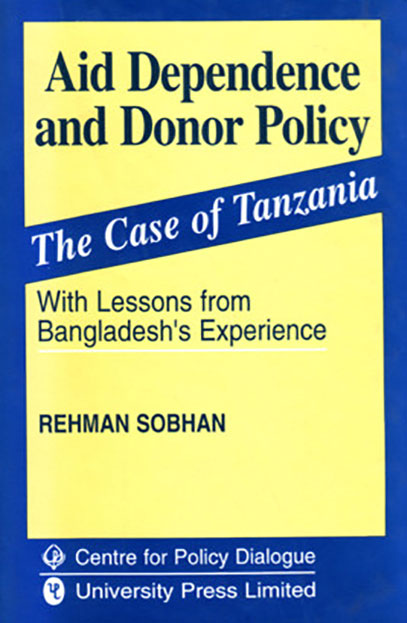
- Shop
- Aid Dependence & Donar Policy: The Case of Tanzania with Lessons from Bangladesh's Experience
Aid Dependence & Donar Policy: The Case of Tanzania with Lessons from Bangladesh's Experience
| Language: English |
Tags :
Book Info
This volume addresses the theme of Tanzania's persistent dependence on foreign aid. The study draws upon the problem of aid dependence in Bangladesh to identify many shared features of this experience. It is argued that the commonalities in the aid experience of Tanzania and Bangladesh originate in the nature of the aid relationship between donors and aid recipients which has compromised the efficacy of aid and the sustainability of the development process. It is this shared nature of the aid relationship, reaching from South Asia to Southern Africa, which makes this study relevant to other Third World countries exposed to prolonged dependence on aid. The study attempts to conceptualise the aid relationship in order to identify the main features of aid dependency, the dynamics of the aid relationship and the implications of this relationship situated within the sociopolitical context of a particular country. The central argument of the study states that aid dependence is driven by certain structural features of the economy and society from which this dependency originates and is perpetuated. The volume provides a wealth of information on the growth and nature of aid dependence in Tanzania and Bangladesh. The study draws on the experience of the author as a top-level policymaker as well as his extensive research interest on the subject of aid dependence and relations with aid donors in Bangladesh and across the developing world. The study should interest policy-makers, donors, academics as well as students of political economy.

Rehman Sobhan
Rehman Sobhan, a recipient of Shadhinata Puraskar, Bangladesh’s highest civilian award, is founder and chairman, Centre for Policy Dialogue (CPD). He served as a member of the first caretaker government in Bangladesh in 1991 and a member, Bangladesh Planning Commission 1972–75. He was a Professor, Economics Department, Dhaka University, and Director General, BIDS, Bangladesh. He was actively associated with the Bengali nationalist movement during the 1960s and the Bangladesh liberation struggle in 1971. His publications include Challenging the Injustice of Poverty: Agendas for Inclusive Development in South Asia (2010), Untranquil Recollections: The Years of Fulfilment (2015) and Untranquil Recollections: Nation Building in Post-Liberation Bangladesh (2021).


